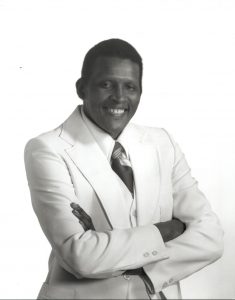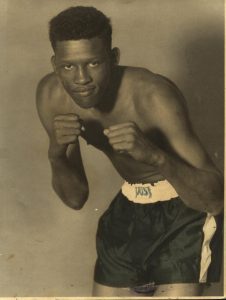 Rarely has someone who has made such a lasting difference in the lives of a community, a city and beyond … rarely has such a person received so little recognition for his substantial contributions. For those who shared their memories of this broadcaster, he was, indeed, part of the fabric that held Birmingham’s Black communities together. This is why the Alabama Broadcasters Association is honored to induct “Tall Paul” White, legendary broadcaster, and civil rights pioneer, into the ABA’s Hall of Fame.
Rarely has someone who has made such a lasting difference in the lives of a community, a city and beyond … rarely has such a person received so little recognition for his substantial contributions. For those who shared their memories of this broadcaster, he was, indeed, part of the fabric that held Birmingham’s Black communities together. This is why the Alabama Broadcasters Association is honored to induct “Tall Paul” White, legendary broadcaster, and civil rights pioneer, into the ABA’s Hall of Fame.
“Paul was the guy on the radio. He was the guy that we heard in the mornings, and he was the guy we heard in the afternoons,” says Gary Richardson, owner of WJLD-AM, part of Richardson Broadcasting Corporation. “He was listened to, and people respected what he said. He didn’t mince words, that’s for certain.”
Before starting his career, White served in the Army, then in 1958, he left Birmingham for Chicago in the hope of earning a broadcasting degree. When he returned to Alabama, he worked at WEUP in Huntsville as a news director and sportscaster and then at WENN, also in a news and sports capacity. By 1962, he landed the morning drive shift, and it was here that he became “Tall Paul”.
One of the first examples of White using broadcasting to aid the civil rights movement came in 1963 during the historic Birmingham Campaign, a plan which included a boycott on businesses that supported segregation. Because the campaign heightened public awareness of the issues, downtown businessmen met with Dr. Martin Luther King and other leaders at the Gaston Hotel to negotiate an end to the boycott. The very next day, the hotel was bombed. Dr. King was the target, but he had already left town. The blast blew out the windows at WENN just a half block away and White, who lived in an apartment across the street from the motel, ran to the station and began to broadcast the breaking news.
“Paul was all about really just looking out for other people,” explains Richardson. “He was about being for events and causes that were bigger than himself.”
Sheila Tyson, Jefferson County Commissioner remembers knowing who “Tall Paul” was at a very early age. “My parents knew Paul, and my mom would always say, ‘We’ve got to listen to the “Playboy”, (another influential D.J.), and “Tall Paul’”, says Tyson. “Because he would broadcast and say something like: ‘Yeah, there’s going to be a party down on 14th Avenue and 18th Street and if I was you, I’d get there, you know what I’m saying?’ And then everyone would relocate to that place because they knew that’s where the protest was at.”
“Oh yes, Paul had a connection with all the teenagers at all the schools and he would motivate them to take part in protests,” explains Richardson. “He’d use coding … street jargon … to tell everybody the different places to go.”
“I was on a softball team that ‘Tall Paul’ coached,” smiles Tyson. “We got to travel, and Paul would talk to us about voting rights and civil rights, and it was more educational than anything.”

In fact, Tyson’s life goals are a direct result of White’s guidance. “Yes, he was a great influence,” she says. “He wanted us to go to HBCU, (historically Black colleges and universities). He believed in education – that it opened the doors to our future. And he was not lying.”
“Paul would give you life-learning tips,” says Richardson. “Early in my career, I didn’t want to be like these guys on the radio who sounded ignorant, and I was using different words and Paul called me over and said he noticed me using some big words. And he said, ‘listen, we in mass communication, not class communication.’ And that stuck with me!”
“He should not be left out of history,” Tyson says. “He was a great part of the civil rights movement.”
“He really wasn’t a technician of broadcasting,” sums up Richardson. “But he certainly used it as a tool … as an instrument for the greater good.”
White passed away on August 19, 2001, at the age of 65. He spoke with WATV’s Shelly Stewart in 1999 and concluded his last interview by saying, “Life is hard by the yard and a cinch by the inch.”